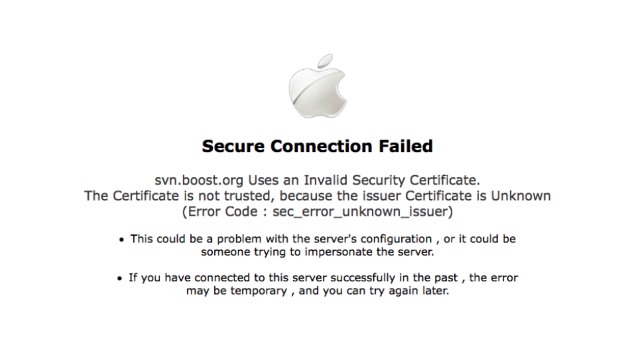
Killer smart devices and other cyber threats you'll face in 2016
The world of online security never stands still, and if the past year has shown us anything it's that you don't need sophisticated technology to launch a successful cyber attack.
Security company Trend Micro has released its annual security predictions report outlining the threats it expects to be facing next year. It forecasts continued growth in online extortion, hacktivism and mobile malware, as well as a shift towards an offensive cybersecurity posture for government entities and corporations.

What's the most-destructive PC virus?
Cyber security is at the forefront of people’s minds in the technology industry at the moment, with a plethora of high-profile breaches pushing the subject into the mainstream.
The likes of Sony, Ashley Madison and T-Mobile have all been hacked within the last 12 months and developing trends such as cloud computing and Bring Your Own Device (BYOD) have made security a hot topic for discussion.

Mac and iOS users warned about Apple support scam
Windows users have long been the primary targets of all manner of security attacks, but now the tide is turning towards Mac users. In recent years there have been more viruses and malware attacks aimed at OS X, and security company Malwarebytes is now warning that Mac owners could fall victim to support scams. iPhones and iPads are also at risk.
It's a story that will be familiar to PC owners: fake technical support agents offer to remotely connect to a victim's computer to fix a (fake) problem, and then take control of the system and wreak unknown havoc. Apple does have its own, genuine remote support system accessible through ara.apple.com, but fraudulent pages with similar addresses are being used to trick people into installing remote access software.

Don't underestimate ransomware
The problem of ransomware isn’t getting better. Recent examples of widespread attacks, including CoinVault, CryptoLocker and CTB-Locker, show that ransomware has become an important part of the cyber-criminals’ arsenal.
Despite this worrying trend, a survey we, at Kaspersky Lab, conducted recently found that a mere 37 percent of companies across the globe actually consider this to be a serious danger: an oversight businesses simply can’t afford to make.

FBI and GCHQ investigate Dridex malware after millions stolen from bank accounts
An investigation spanning the US and Europe is under way after tens of millions of dollars was stolen from bank accounts. The thefts are believed to have been facilitated by a strain of malware known variously as Dridex, Bugat, and Cridex, enabling a group known as Evil Corp to siphon off funds.
The malware has been known of for some time, but law enforcement agencies have only just started to make significant inroads that could thwart the activities of the botnet. An arrest has now been made in connection to the malware which hijacked online banking login pages on infected computers. After stealing usernames and passwords, taking money from accounts was a simple task.

Malware targeting Microsoft Outlook Web App is after your password
A newly discovered malware targets Microsoft’s Outlook Web App, the company’s web-based email client. The news was unveiled by security firm Cybereason, which said the advanced persistent threat (APT) can enable patient attackers to steal an organization’s email passwords over time.
By using this approach, the hackers managed to collect and retain ownership over a large set of credentials, allowing them to maintain persistent control over the organization’s environment, Cybereason says.

Yes, there's malware that infects your router to keep you safe
Well, this is a new one -- a piece of malware has been discovered which infects routers, but bolsters their protection against other viruses and nastiness, rather than doing anything bad.
Linux.Wifatch apparently improves the security of routers, many of which are poorly configured and are increasingly targets for malware authors.

The most effective malware removal tools
The security industry tends to focus on prevention, but even on the best protected system there's always a chance of zero day infections slipping through the net. It's therefore important that products have an effective removal capability too.
The latest report from independent testing organization AV-Comparatives focuses on 16 of the leading security tools and how good they are at removing malware from infected systems.

OS X Gatekeeper rendered useless by new malware exploit
On the day that Apple releases El Capitan details of an exploit that makes it possible to bypass the Gatekeeper feature of OS X have emerged. Designed to combat various forms of malware, the security feature can be bypassed using a simple trick involving the use of a signed binary.
Even when Gatekeeper is configured to use its highest level of protection, the ease with which the fortifications can be slipped through is staggering. Using a file that has already been deemed trustworthy by Apple, it is possible to trick OS X into executing a malicious file stored in the same folder as the signed one. No patch is yet available, and it is believed the problem affects all versions of OS X.

Who you gonna call? Ghost Push Android virus infects 600,000 people a day
If you frequent Android forums you'll probably have seen references to 'Monkey Test' and 'Time Service' as users report that it's hard to get rid of these apps.
Researchers at Cheetah Mobile's CM Security Research Lab have discovered that the source of these apps is a virus called 'Ghost Push'. This installs unwanted and annoying apps on the device and can't be removed easily even by doing a factory reset or using normal antivirus software.

Apple cleans up the App Store after serious malware attack
Apple has started a clean-up operation of the Chinese version of its App Store after it was flooded with apps infected with XcodeGhost malware. The problem was not detected by Apple, but a number of security firms who discovered various malicious iPhone and iPad apps littering the Store.
The apps made their way past Apple's usually-rigorous vetting process after developers were tricked into using a counterfeit version of the Xcode tool to create them. The attack has been described as "a pretty big deal" although at this stage there are no reported instances of data theft or attacks on victims.

Don’t get sucked in by Facebook Dislike button scams -- or vomiting snakes
You've probably heard talk recently of Facebook adding a Dislike button or an 'empathize' button. While this is certainly something that has been in the news, it is not yet a reality -- and it has created a great opportunity for scammers to cash in on people's impatience.
We don’t get know exactly what form the Dislike button will take, or when it will appear, but there are now several scams in operation that lure in victims with the promise of instant access to the yet-to-be-released feature. A variety of techniques are employed by scammers to encourage victim to "Download the official DISLIKE button now". It is, of course, a fake, and there are a number of things to look out for.

Private keys leaked in D-Link firmware may have been exploited by hacker to digitally sign malware
Malware writers may feel as though they've hit the jackpot after a slip-up by D-Link. The networking company released open source firmware that revealed the private keys used to sign D-Link software.
It was discovered that the firmware for a D-Link DCS-5020L security camera included D-Link's private keys as well as the passphrases needed to sign software. Windows users could have been at risk as malicious software could have been signed allowing for the installation without alerting security software.

More than 21 million new threats detected in second quarter of 2015
PandaLabs, the malware research arm of Panda Security, has published its latest quarterly report showing that malware creation levels have broken new records.
It reveals that in the second quarter of 2015 there were an average of 230,000 new malware samples detected each day, which means a total of 21 million new types in these three months. Compared to the same period last year, where there were 160,000 registered samples, this is an increase of 43 percent.

Android/Lockerpin.A ransomware holds victims hostage by changing their PIN
The latest ransomware to hit Android users attempts to force victims into coughing up $500 by changing the PIN used to lock the device. Disguising itself as a system patch and then a message from the FBI suggesting that 'forbidden pornographic sites' have been viewed, the Android/Lockerpin.A malware differs from previous examples of ransomware that encrypted data.
The malware is impossible to remove without root access or by performing a factory reset. An interesting feature of the PIN change is that even the attacker is unware of what the new code is -- handing over money really makes no difference. But also worthy of note is the way in which Android/Lockerpin.A manages to gain Device Admin privileges.
